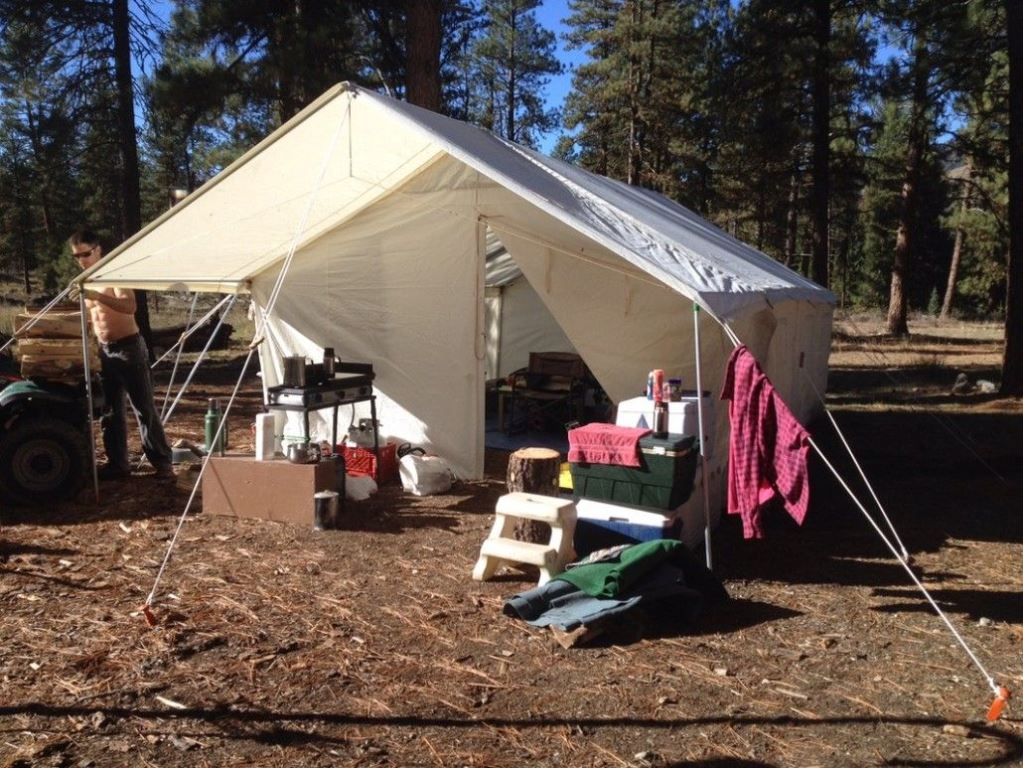So you’ve read up on trails you want to hike, and you’re ready to head out into the great outdoors for the very first time. However, it must be said that the wilderness contains very real risks to your comfort, your property, and even your life.
Scared? Calm down, there is no need to be. Simply ensure that you are prepared before hitting the trail and you’ll be ready to confront any situation that you encounter along the way. With that in mind, here is some gear that should never leave home without on your first backcountry camping trip.
Knife – This is a big one. A knife allows you to cut twine to hang a tarp, make a clothes line, cut twigs so you can make kindling for a fire, and so on. Forget this one, and you may find yourself in a spot of trouble very early on in your journey.
Ground Sheet – Think you can just lay your tent down on the ground anywhere, thinking that the thin layer of nylon/plastic will work just as well as your floor back at home? Think again. If you place your tent in any sort of depression, rainwater can seep into your tent from below, getting all your sleeping gear (and anything else on the ground) soaking wet. This can make you miserable and cranky and best, and put you in a hypothermic situation at worst.
 First Aid Kit – Another no-brainer. If you or anybody else gets hurt on the trail, there is no hospital readily accessible of tens or hundreds of kilometres, and your fellow hikers might not have the medical training to help you effectively. A first aid kit contains the bandages and the antiseptics to prevent a cut from turning into a more serious infection. Additionally, one of your fellow compatriots should have some training in First Aid (ideally, Wilderness First Aid) so that any injury/illness that arises can be stabilized without putting your friend’s live at risk.
First Aid Kit – Another no-brainer. If you or anybody else gets hurt on the trail, there is no hospital readily accessible of tens or hundreds of kilometres, and your fellow hikers might not have the medical training to help you effectively. A first aid kit contains the bandages and the antiseptics to prevent a cut from turning into a more serious infection. Additionally, one of your fellow compatriots should have some training in First Aid (ideally, Wilderness First Aid) so that any injury/illness that arises can be stabilized without putting your friend’s live at risk.
Warm Clothing – Especially if you’re hiking in the desert or the mountains. Temperatures can be warm, even hot, during the day. At night though, at elevation and with clear skies, these areas can become frigid, even during the middle of the summer. Packing a hoodie and some sweatpants, and a sleeping bag that isn’t summer rated can keep your backcountry a comfortable one during the evening hours, rather than one marked by shivering and complaining.
These are only a few things you should keep in mind when heading out into the backcountry for the first time. For more information, contact an outdoor guide, or the visitor’s centre of the national park. They will be pleased to help you with all your rookie questions.
Remember: be prepared, and happy hiking!
